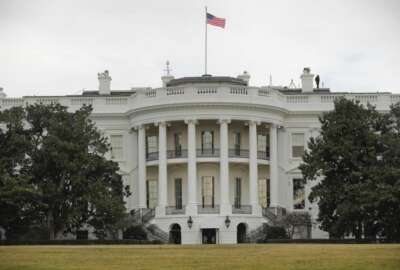

Without commenting on whether ten cents per page is an excessive fee for an online system in the modern era, a federal appeals court finds the federal judiciary has...
An appeals court has ruled it’s fair game for the federal judiciary to charge the public for online access to court records, but that those fees can’t be used as a revenue stream to fund millions of dollars in unrelated IT projects.
The ruling is a partial victory for public interest groups, news organizations and legal researchers who had sued federal court administrators, alleging the fees violated the 2002 E-Government Act and the First Amendment.
At issue is the federal judiciary’s Public Access to Court Electronic Records (PACER) system, which charges users 10 cents per page (up to a maximum of $3.00 per document) for access to the more than one billion records now housed in the system, and also assesses fees each time someone searches a court’s docket. The plaintiffs claimed those charges bring in far more revenue than what it actually costs to run PACER, and create a barrier to open government.
Court documents filed by the National Veterans Legal Services Program and other plaintiffs claimed the rudimentary website costs only about $1 million per year to operate and maintain. But the revenue it generates from user fees has steadily risen since it started as a dial-up modem service three decades ago, to $146 million in 2016.
“The [Administrative Office of the U.S. Courts] (AO) finds new ways to spend extra PACER fees as they keep growing,” the challengers wrote in one filing, which noted that the fees have been funneled into a general-purpose information technology fund that had accumulated a surplus of nearly $150 million as early as 2006.
“But once again, the AO did not reduce or eliminate PACER fees. It instead sought out new ways to spend the excess, using it to cover ‘courtroom technology allotments for installation, cyclical replacement of equipment, and infrastructure maintenance’ – services that relate to those provided by PACER only in the sense that they too concern technology and the courts.”
In Thursday’s ruling, the Court of Appeals for the Federal Circuit agreed with the gist of that claim, and with a lower court’s ruling that judicial branch administrators had been using PACER revenues for projects Congress never allowed.
The three-judge panel found the government liable for improper use of the PACER fees for general courtroom technology expenses like flatscreen TVs, plus several others that the funds have been used for since 2010. Those include a study on public access to the Mississippi state court system, a separate system designed to manage federal juries, and another one that’s designed to communicate with local law enforcement agencies about offenders’ status in the federal criminal court system.
“We agree with plaintiffs and amici that the First Amendment stakes here are high,” the judges wrote. “If large swaths of the public cannot afford the fees required to access court records, it will diminish the public’s ability to participate in and serve as a check upon the judicial process – an essential component in our structure of self-government.”
But the appeals court did not go as far as the plaintiffs wanted. They’d asked for an order that would stop court administrators from charging fees any higher than what it costs to do what PACER actually does: serving up PDF documents and docket information from a publicly-available web server.
The judges ruled it’s within reason for the government to keep using the revenues for some related purposes, like operating audio recording systems in courtrooms – since those audio files are also available via PACER – and a closely-related system that lets attorneys file court pleadings online.
Though the ruling appears to foreshadow a decrease in PACER fees, it’s unclear how much they’d decline under the latest appellate decision.
The judges left the specifics to U.S. District Court Judge Ellen Huvelle, who they concluded “got it just right” when she ruled the government was using PACER fees too broadly. They also agreed with the “middle ground” she struck in the 2018 ruling that became the subject of the appeal.
In that case, Judge Huvelle declined to completely take the plantiffs’ side: they’d asked for a decree that PACER fees could only be used for the “marginal costs” of providing court docket information to the public. But she decided — and the appeals court affirmed — that there are at least some parts of the fee structure that could be spent on other things, as long as they’re related to delivering court information to the general public.
Even if the court agreed PACER fees could only be used for “marginal” costs involving court records, it’s going to take more litigation and study to determine exactly what those expenses are, Huvelle wrote at the time.
“The court would still have to determine the meaning of ‘marginal cost’ and whether any of the expenditures … are part of that cost, since plaintiffs only expressly challenged of the expenditures in several important categories, and defendant has only admitted that some of the expenditures in those categories are not part of the marginal cost,” she wrote in the 2018 decision.
Aside from the veterans service organization who serves as the first named plantiff in the lawsuit, the case has garnered support from a wide variety of organizations who depend on PACER and view its fee structure as a barrier to government transparency.
Nearly 30 news organizations, led by the Reporters’ Committee for the Freedom of the Press, filed amicus briefs. Former Connecticut Sen. Joe. Lieberman, the chief sponsor of the E-Government Act, also weighed in with similar views urging the court to limit fees. Dozens of other interest groups, including the American Civil Liberties Union, the American Library Association, the Alliance for Justice and the Cato Institute came down on the same side.
“PACER revenues are relied upon to fund items far afield from maintenance of the PACER system, rendering surplus PACER revenues a kind of generalized information technology fund,” read one of the amicus briefs led by the ACLU. “That kind of boundless authority risks allowing PACER fees to interfere with meaningful access to the courts — and that is precisely what the First Amendment prohibits. While charging fees as a condition of allowing the free exercise of First Amendment rights is permissible, those fees must be reasonably related to the costs of administration and maintenance.”
Copyright © 2025 Federal News Network. All rights reserved. This website is not intended for users located within the European Economic Area.
Jared Serbu is deputy editor of Federal News Network and reports on the Defense Department’s contracting, legislative, workforce and IT issues.
Follow @jserbuWFED



